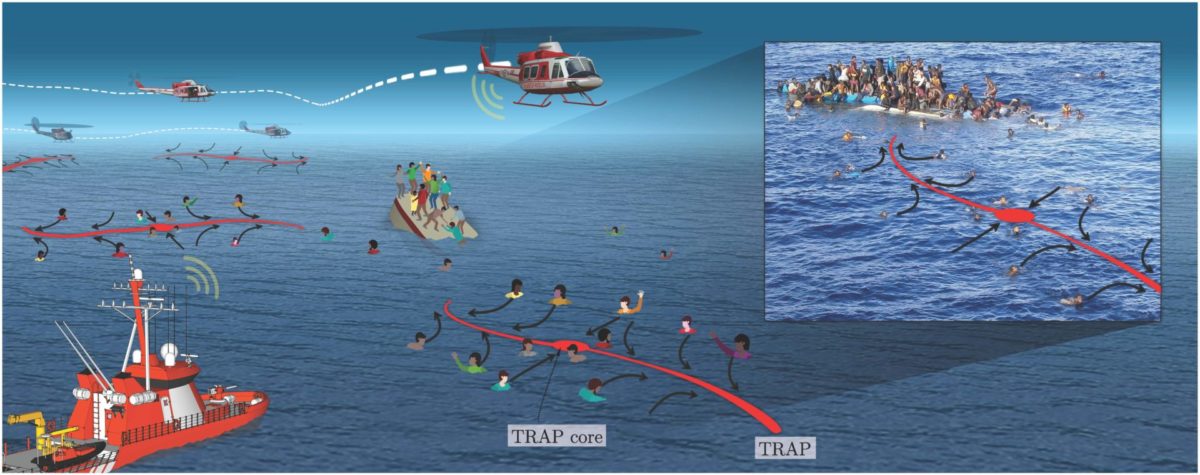New research, first authored in Nature Communications by 2018 Schmidt Science Fellow Dr. Mattia Serra, could help to save hundreds of lives every year by helping search and rescue services to find people lost in the ocean much faster.
When a person enters the ocean, rescue teams only have a short period of time, normally less than six hours, to find them before their chances of being found drastically diminish. Weather conditions, tides, and coastal currents make the task of identifying where a person may have drifted to extremely difficult. The research team, involving Mattia and led by Prof George Haller at ETH Zurich with collaborators at MIT, Woods Hole Oceanographic Institution, Virginia Tech, and the US Coast Guard, combined tools from dynamic systems theory with ocean data to develop an algorithm to predict where a person in the water would most likely drift. The model integrates information on ocean current strength and direction, wave pattern, and surface winds.

The model suggested that objects in the water would congregate along identifiable ‘curves’ on the ocean surface. The team tested the model with the US Coast Guard off the coast of Massachusetts where it proved remarkably accurate. If adopted by search and rescue agencies, the algorithm has the potential to save lives by directing teams more quickly to the most likely place to find a person lost at sea.
Mattia, now a postdoctoral fellow at Harvard University after completing his Fellowship placement, completed the research as a PhD student at ETH Zurich. ETH Zurich nominated him as part of the inaugural cohort of Schmidt Science Fellows.
Learn more about this research from MIT and ETH Zurich.
Find out more about Mattia’s research, life, and ambitions in a film and feature as part of the ‘We Are Schmidt Science Fellows’ series.